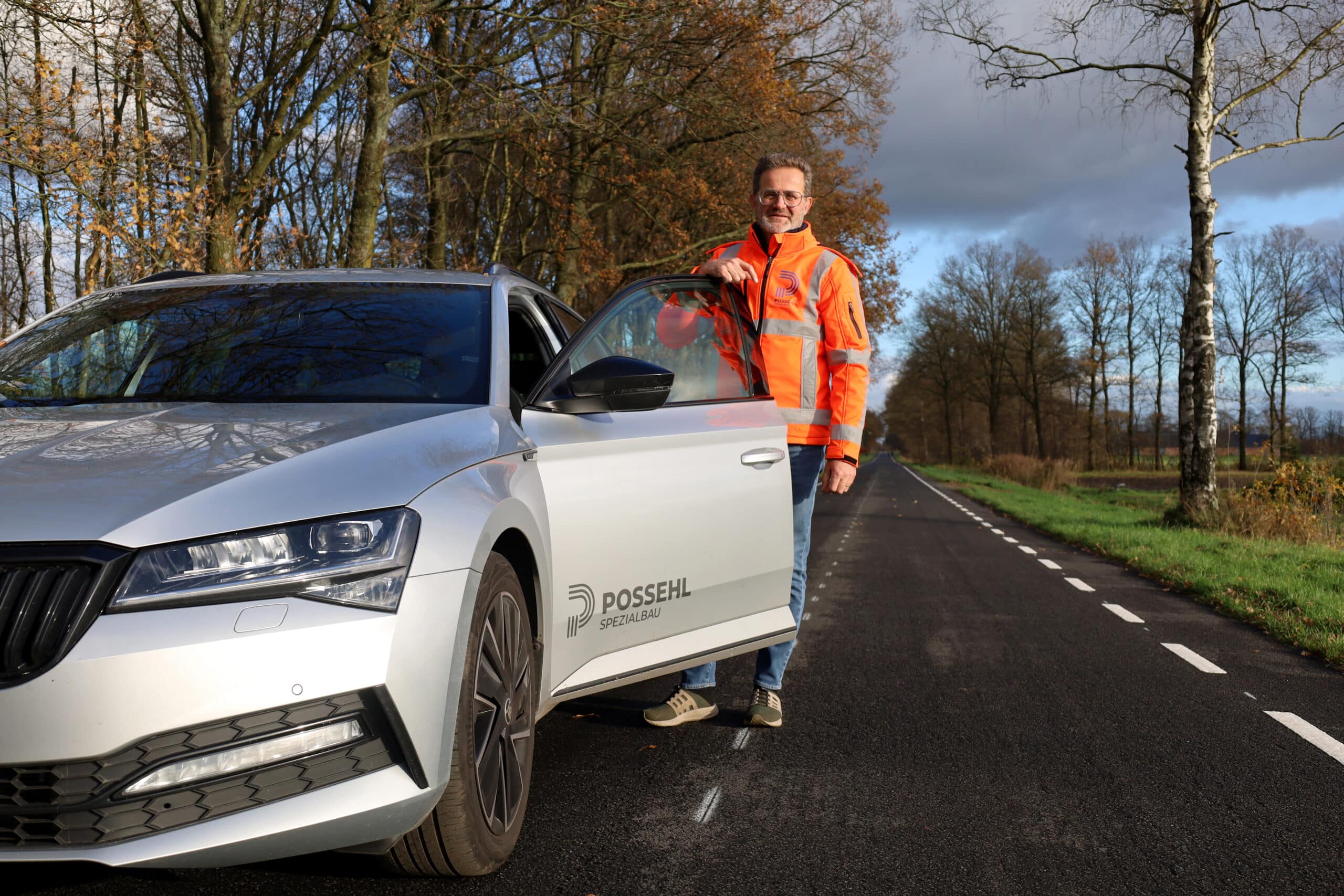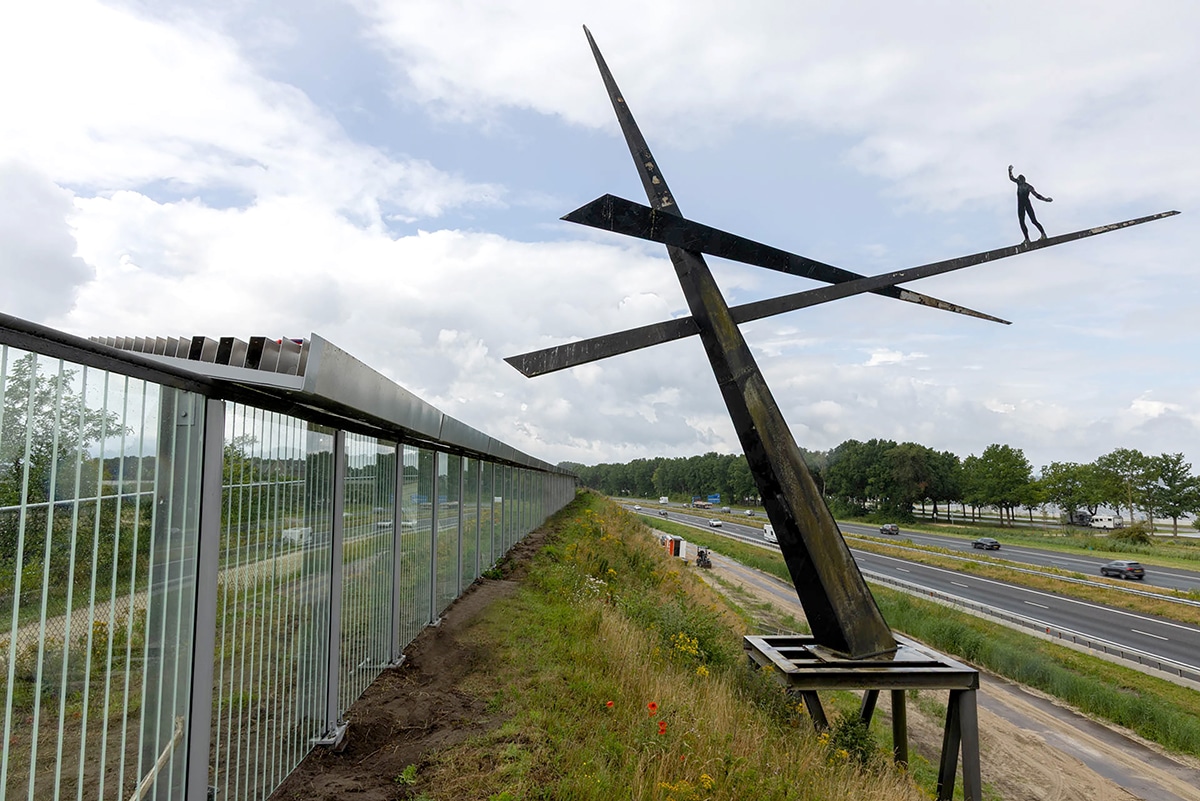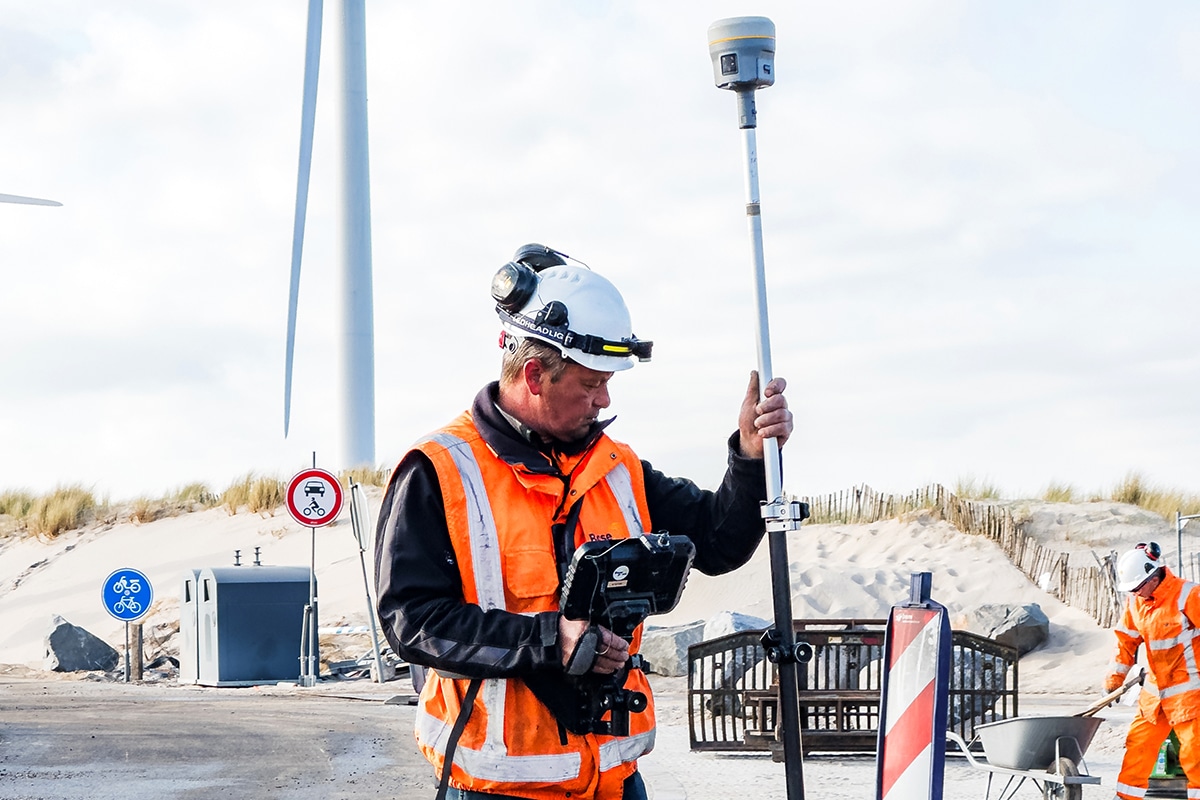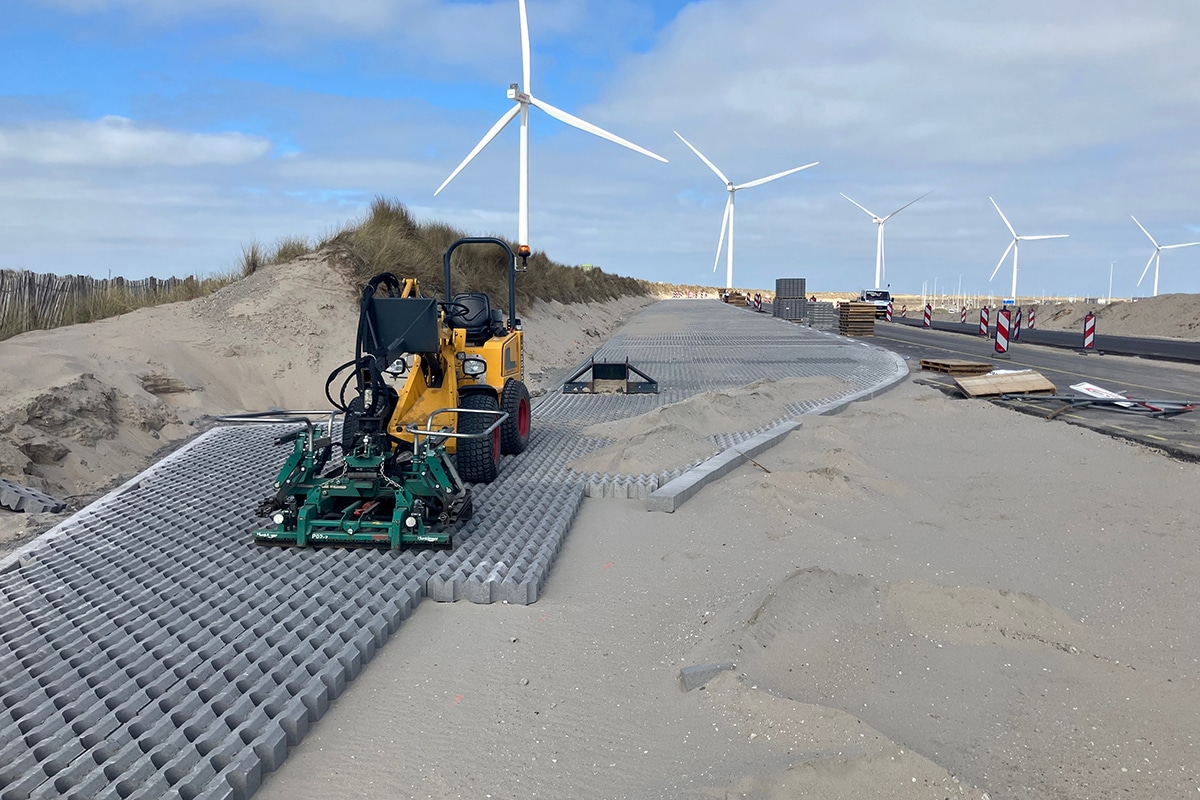
'New' bitumen not always desirable for road safety
In the past, real red asphalt was still made on the basis of clear bitumen for bicycle backing strips and crossings, for example. Due to the phasing out of clear bitumen, people are now increasingly switching to black asphalt pigmented with iron oxide. It results in a more brownish tint, blurring the distinction between the carriageway runner and bicycle-suggestion lane. Not exactly conducive to road safety. Possehl has the solution: red Thermoflex.

Clear bitumen is actually not bitumen, but a type of plastic, begins Patrick Roijers, commercial manager at Possehl. "The quality of red asphalt based on these blank bitumen leaves much to be desired. We hear and see that in practice. It does not have the lifespan of normal asphalt. The alternative to this red asphalt is black asphalt to which a few percent iron oxide is added. What you get then is not red, but brown asphalt."
Signal function
While the durability and quality of this "brown" asphalt is higher, there is one major drawback to this alternative. "In the dark, when it's raining or the sun is shining on the asphalt, you see virtually no difference between the bicycle suggestion lane and the lane runner," Roijers knows. "While the red asphalt actually has a signal function and is meant to create extra safety between traffic and the vulnerable road user. With Thermoflex in combination with a red mineral dusting material, for example, we offer a durable and clearly visible bicycle lane and/or crossing. Even in the dark, in rain or with strong sunlight. The difference between the 'brown' asphalt and Thermoflex is significant." That, according to Roijers, is why Possehl is already overlaying the brown asphalt with the red Thermoflex for several clients.

Higher quality
Thermoflex is basically a modified 2-component coating. "We can pigment this coating in any RAL color," Roijers explains. "It is a proven product, as we have already had the opportunity to apply hundreds of thousands of square meters over the past decades. Thermoflex has a proven lifespan of between fifteen and twenty years. Because it is applied afterwards, the contractor can apply an all-black overlay without having to overcome longitudinal seams or other obstacles. After the lines are on, we apply the red coating, tight against the lines. So using Thermoflex is better quality for the entire road construction. It is also a plastic product, and does not come under tension."
Ready-made specification texts
Thermoflex hardly ages, according to Roijers. "For example, last year we applied a new section to a section we applied eighteen years ago. After cleaning it with a road surface cleaner, the difference between old and new was barely visible. Even the skid resistance was still found to be quite good." In addition to asphalt, Thermoflex also adheres to concrete, steel, wood and composite. To make it even easier for clients to apply Thermoflex, Possehl has adapted the specification texts to the Dutch RAW systematics 2022. "This means that our specification texts are available in different file formats, such as RSX or PDF. Engineering firms or municipalities can read these and adopt them in their own specifications. But we are also profiling ourselves more and more as a knowledge partner and are happy, and completely free of obligation, to think along in the preliminary design to arrive at the best solution."
Experience Possehl products for yourself? That is possible in the unique experience center in Oosterhout. Interested parties can make a test piece of Thermoflex themselves in the desired RAL color and with the specific spreading material. Because Thermoflex also lends itself perfectly to the "coloring" of, for example, intersections or squares, whether or not in combination with natural dusting materials or even recycled glass aggregate.
Heeft u vragen over dit artikel, project of product?
Neem dan rechtstreeks contact op met Possehl Contracting Company B.V..
 Contact opnemen
Contact opnemen




